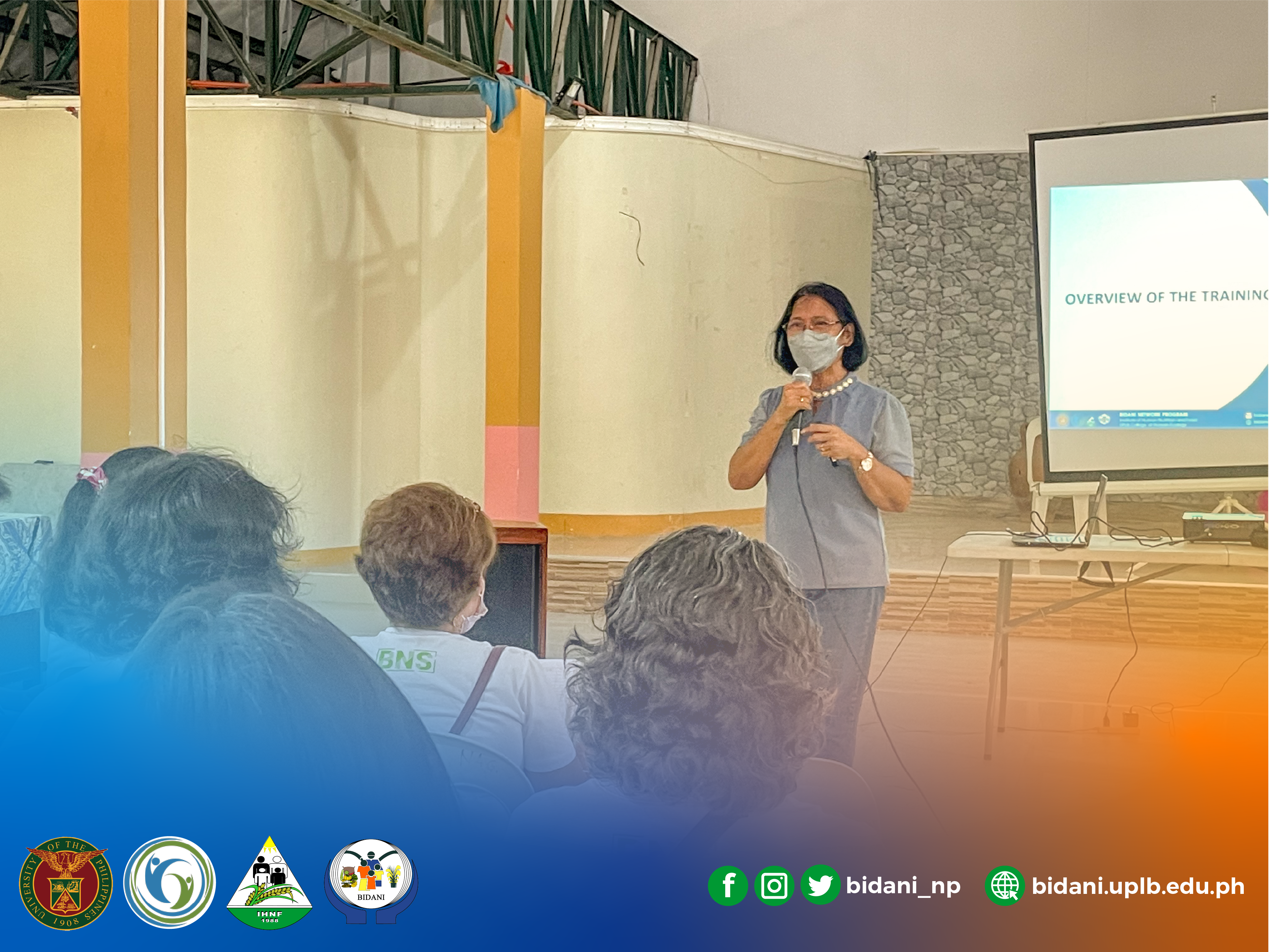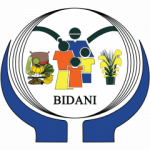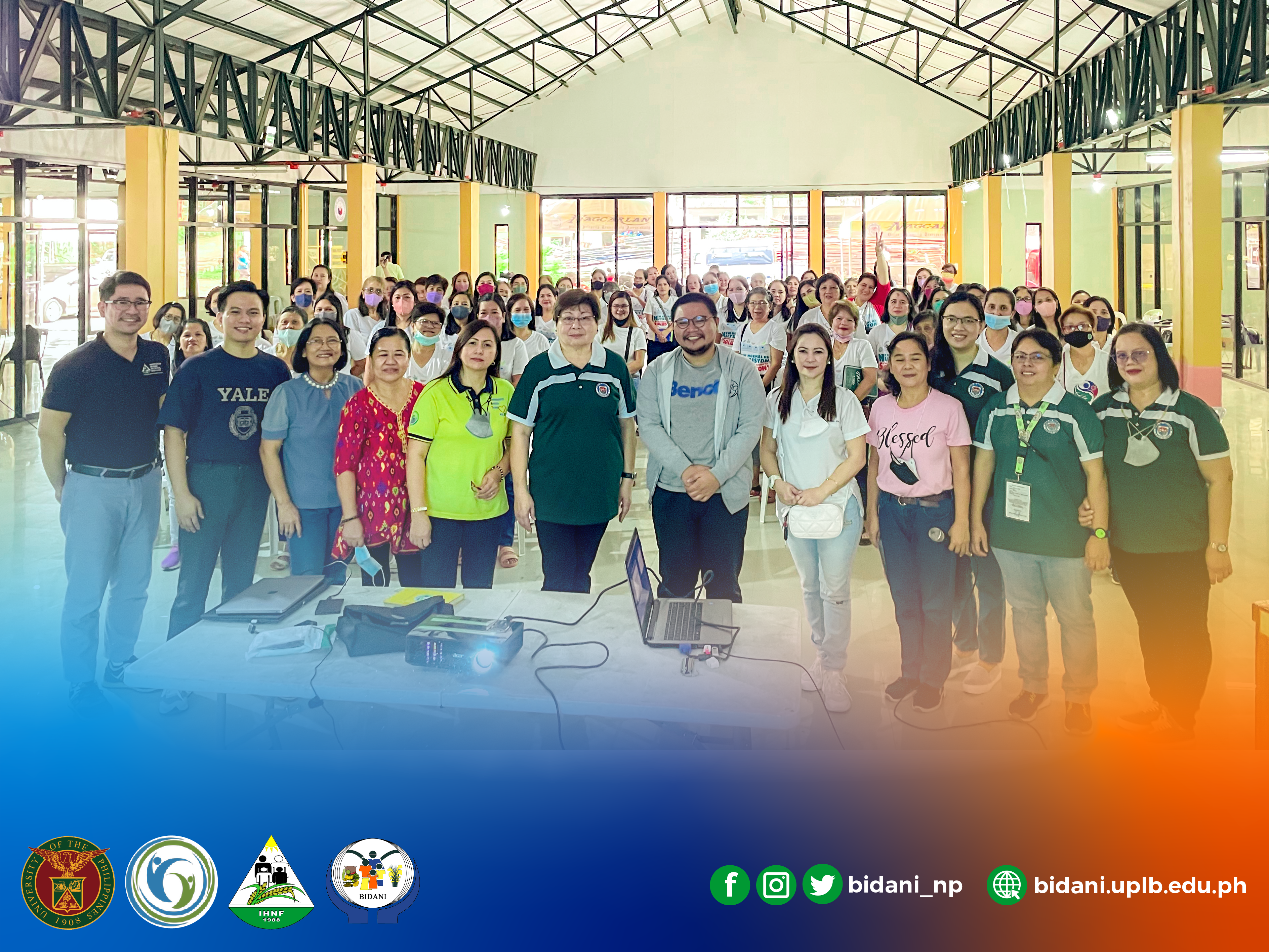Nagcarlan, Laguna — Last February 22 – 23, 2023, the UPLB-BIDANI trained the focal nutrition workers of Nagcarlan, Laguna in Participative Nutrition Enhancement Approach (PNEA).
The participants came from the Municipal Health Office of Nagcarlan, Laguna — Municipal Nutrition Action Officer, Medical Officers, Rural Health Nurse, and the Barangay Nutrition Scholars from the 52 barangays of the municipality. The event was made possible through the partnership of local government offices of Nagcarlan, Laguna – specifically, the Municipal Health Office, headed by Dr. Cynthia Quebrado, the Office of the Municipal Planning and Development Coordinator, headed by Engr. Randy Moredo — with the support from the Municipal Mayor, Hon. Elmor Vitangcol Vita. The barangays of the Municipality of Nagcarlan, Laguna have been implementing the Barangay Integrated Development Approach for Nutrition Improvement (BIDANI) innovative strategies for more than two decades. The BIDANI, as a strategy, is a long-term, integrated, and holistic approach in developing and empowering the communities in the Philippines.
Through the Local Government Code of 1991 or RA 7160, the LGUs are given autonomy for decision-making, self-governance, management, and delivery of services, including malnutrition. Moreover, the LGUs are tasked to strengthen advocacy and integrating nutrition-specific and nutrition-sensitive programs, projects, and activities in local development plans aligned with the national nutrition plan. With this, PNEA, as a BIDANI innovative strategy, reinforces these mandates and facilitates systematic and evidence-based nutrition program planning, implementation, and management at the barangay level.
The two-day training aimed to build the capacities of the local nutrition frontliners in Nutrition Program Management through the implementation of PNEA. PNEA is one of the innovative strategies of the BIDANI along with the Barangay Integrated Development Approach — which creates awareness and empowers actors to actively participate in development efforts in their communities and enhance the capacity of the local leaders in planning, implementation, monitoring, and evaluation of development programs/projects/activities — and the Barangay Management Information System — which serves as the barangay’s data and information system/center for situational analysis using accurate, reliable, and easily retrievable data for program planning and implementation. PNEA utilizes a participative strategy in preventing malnutrition through the life cycle approach (from womb to tomb), as well as promoting food production and market-driven livelihood activities at the household level. Furthermore, it facilitates the implementation of the Philippine Plan of Action for Nutrition at the local level and strengthens the skills of key nutrition and health providers on health and nutrition development activities.

Through the PNEA training, the participants were given an overview of the importance of PNEA in contributing to the achievement of the Philippine Plan of Action for Nutrition, in combating malnutrition, and achieving national development. Furthermore, through the training, the importance of an active Barangay Nutrition Committee (BNC) was also emphasized. The BNC, headed by the barangay chairman, will be responsible for the development of the barangay’s nutrition action plan, which is the main output of the PNEA training.
In the coming weeks, the UPLB-BIDANI, headed by PNEA Coordinator Belinda Lalap, will be working with the 12 BIDANI model barangays in Nagcarlan, Laguna and will mentor them for the development of their respective Barangay Nutrition Action Plans.
King Niño B. Manzano

